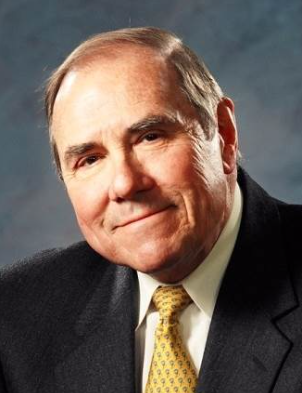Costas T. Lambrew, MD

January 19, 1932 ~ December 12, 2019
Costas T. Lambrew, MD, FACP, MACC
Costas T. Lambrew (Gus) died on December 12, 2019 at the age of 87 after a full and meaningful life. All of his family spent every moment possible by his side during his illness.
Dr. Lambrew dedicated his career to advancing research, training, and quality health care for all, including presidents, princes, and people in poverty.
He was a pioneer in cardiology, recognized nationally and internationally in numerous ways. For example, he developed one of the first paramedic pre-hospital cardiac care programs in the U.S. and helped create cardiopulmonary resuscitation (CPR) programs. He travelled the world presenting his research on thrombolysis in myocardial infarction ("clot busters"), which advanced care for patients with acute heart attacks. He was named a Master of the College of Cardiology in 2004; fewer than 100 held that title at the time.
Dr. Lambrew worked at Maine Medical Center (MMC) from 1977 until he retired in 2004. Dr. Lambrew began at MMC as a Physician Educator in Emergency Medicine, followed by positions as Vice President of Health Affairs; Director, Division of Cardiology and Cardiac Intensive Care Unit; and Chief of Cardiology. He advanced MMC to the list of the top 100 best cardiac care hospitals in the country.
At MCC, Dr. Lambrew led a cardiology fellowship program which trained many of the cardiologists practicing in Maine today. He was a professor of medicine at Cornell, State University of New York at Stony Brook, and University of Vermont. He was an active member and held various positions with the American Heart Association, American Medical Association, American College of Physicians and American College of Cardiology.
Dr. Lambrew published over 100 peer-reviewed articles and book chapters. He also helped launch the modern era of clinical research at MMC. MMC's annual research retreat is named in his honor.
Gus received his B.A. from Wesleyan University in 1953 and his medical degree from Cornell University Medical College in 1957. In addition to MMC, he worked at the National Institutes of Health, New York Hospital, Nassau County Medical Center and Unum.
He was a curious and intellectual man: speaking multiple languages including his native Greek. He enjoyed respectful and spirited debate, was kind, gentle and always helped others. He loved to read, sing, travel and sail.
As a man of faith and family, Gus will remain with us in spirit through his wife of 55 years, Patricia; three daughters: Christie Karmen, her husband John, and her sons Justin and Colin Donnelly; Jeanne Lambrew; and Kate Hull, her husband Jeff, and their children Owen and Nora. Being an only child, he especially appreciated Pat's large and loving family.
A Mass of Christian Burial will be celebrated at Saint Maximilian Kolbe Church, 150 Black Point Road, Scarborough on Wednesday, December 18, 2019 at 11am.
No contribution is necessary, but instead of flowers, we suggest donations to Preble Street (Development Department, 38 Preble Street, Portland, ME 04101) or the Maine Medical Center to support the Lambrew Research Retreat (Development Department, 22 Bramhall Street, Portland, Maine 04102).









As I was a general internist, our paths did not cross very often; but Gus was always congenial. I remember an instance when the CICU was full, and my patient was recovering, another patient with an emergent problem needed a bed. Instead of telling me, Gus asked if I thought he could be moved to the convalescent unit. He had such a nice way of doing things.
– Sumner Moulton
I will always be grateful to Dr. Lambrew for giving my my start as a research coordinator at Maine Medical Center. His powerful intellect, kind heart, and gentle spirit had an enduring influence on all those who knew him. My sincere condolences to Pat and family. Claire Berg
– Claire Berg
So sad to lose your father, Jeanne. Our deepest condolences to the Lambrew family. We hope you can surround yourselves with memories that bring you close. Patty and Alan Hymanson
– Patty Hymanson
One of the nicest men I had the pleasure of working with. Such a brilliant man. My condolences to his family.
– Toni Galley
Costas was a colossus in every sense of the word- his skills, his empathy and his humility. He never forgot and seemingly always applied the second great commandment – Love of Neighbor. He will continue an inspiration to me. Walter
– Walter e Corey
Gus embodied the best in medicine. He was a gifted clinician (witness his seminal paper with Eugene Braunwald on IHSS– now known as hypertrophic cardiomyopathy). He was deeply committed to teaching. And he exuded aequanimitas, keeping his wits about him as others of us lost ours. On top of all this, he was unfailingly kind and upbeat. His smiling eyes (see photo) conveyed warmth and, perhaps, insight into the jokes that life plays on us. I’ll remember him as an inspiration, one of a threatened species of heroes in medicine. George McNeil, MD
– George McNeil
I have such lovely memories of Cos, a truly kind, interesting and interested man. He was always very present and showed concern for you… Very caring…. Great qualities not just for a Doctor but for a human being. I send my heartfelt condolences to you Pat and the girls. May he rest in peace and may you find comfort in all of your shared memories. Xo, Peg Golden
– Peggy Golden
Dr. Lambrew co-chaired the “60 Minutes to Treatment Working Group” convened by the National Heart, Lung, and Blood Institute’s (NIH’s) National Heart Attack Alert Program. Together with Dr. Mark S. Smith, an emergency medicine physician who at the time was the Chairman of Emergency Medicine at George Washington Hospital in Washington DC, they developed recommendations for the rapid identification and treatment of heart attack patients who present to the emergency department. Dr. Lambrew underscored the science supporting the paper’s overarching recommendation, that patients with an acute coronary occlusion, need to receive artery-opening treatment (at the time with thrombolytics) within 60 minutes to prevent heart damage. He and Dr. Smith, who coined the 4D’s–door/data/decision/drug–where delays occur in the emergency department (and where quality improvement efforts should be directed). Drs. Lambrew and Smith were the pre-eminent cardiologist-emergency medicine physician team. The “60 Minutes to Treatment” recommendations were widely disseminated among the 40 professional organizations on the National Heart Attack Alert Program’s Coordinating Committee. They significantly contributed to greater awareness of the importance of recognizing, transporting, triaging, and treating heart attack patients in the community, by EMS, and in the emergency department/hospital, likely saving many lives.